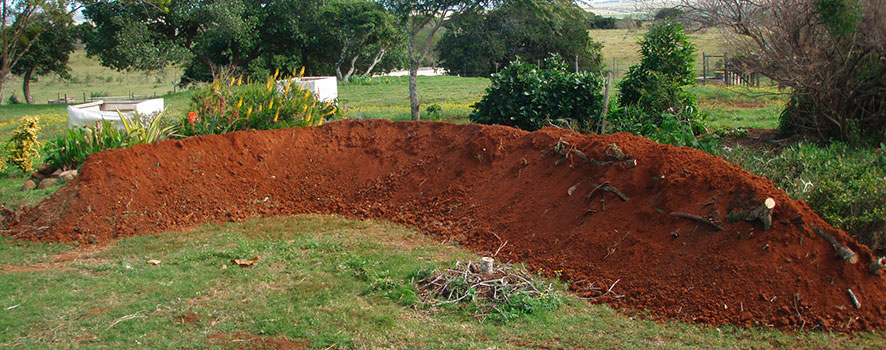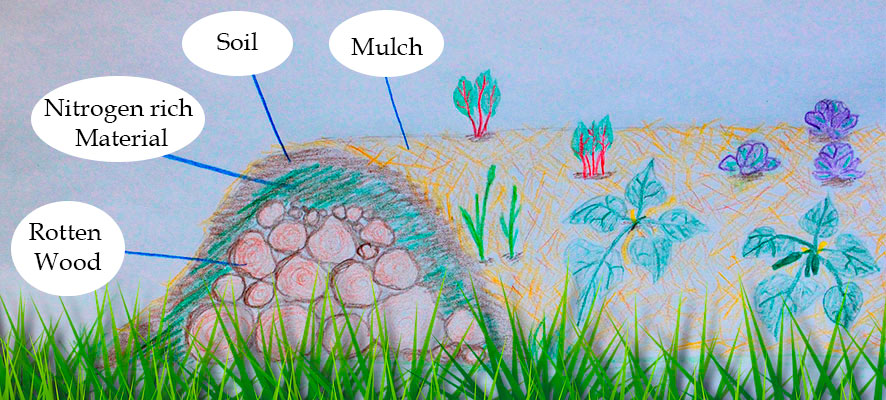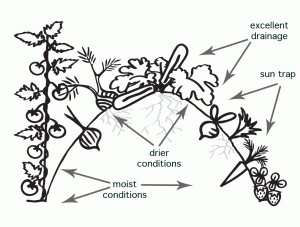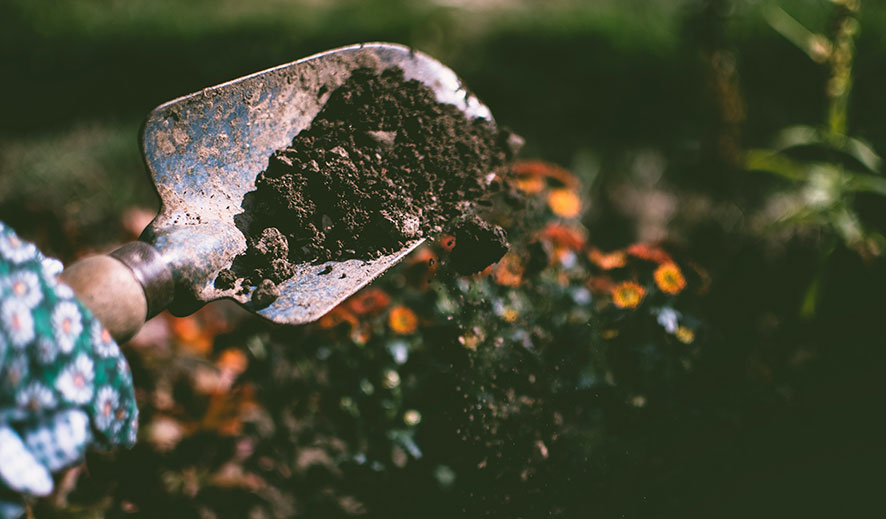
If your crop is located in an area with poor drainage, limited humidity or you simply want to improve the productivity of your soil, you must know about the german Hugekultur technique.
Hugekultur is an ancient German technique. It is a process of making raised garden beds filled with rotten wood. Yes, you’ve read that right, rotten wood!
The result is a low-maintenance garden that requires little watering. Hugelkultur beds are naturally well drained and produce incredibly rich and fertile soil that retains moisture. It is also a great way to recycle woody debris. Hugelkultur is often used in permaculture systems and even works in the desert.
No more than four layers
Stack branches or brush a foot or two deep into a mound of 4 to 8 feet long. Step on the pile to compact it a bit. Then, toss compostable materials like grass clippings or straw into the pile. Sprinkle some compost on the mound and cover with an inch (2.54 cm) or more of soil. Now you just have to plant your seeds and sprouts on the mound.

3 advantages of the Hugekultur technique
1) Excellent growing conditions
These beds, also known as hugels, provide excellent growing conditions for a wide variety of plants. The north side of the hugel provides a sun trap. The top of the hugel provides drier, well-drained soils. And at the base of the hugel there are very good conditions for water-hungry plants. In this image it is very well explained:

2) Create a GreenHouse effect
The growing season is prolonged due to the heat generated by composting the wood.

3) Create a beneficial environment in your vegetable garden
This German growing system provides a beneficial environment for fungi and mycelium, thanks to the rotting of the wood. Worms love giant fish and because it has a variety of decomposing materials, varied food sources, air pockets, wetter areas and drier areas, it provides habitats for beneficial microorganisms for our garden.
----------
Source: Hugekultur.com
Did you enjoy reading the article? Has it clarified any doubts for you? Give us your opinion and help us spread it on your social networks. We also invite you to follow us on Instagram.